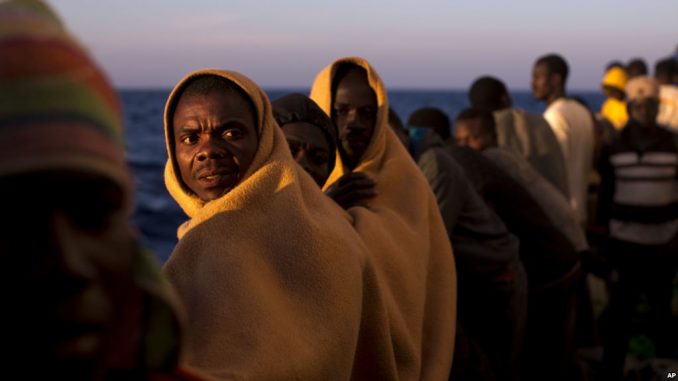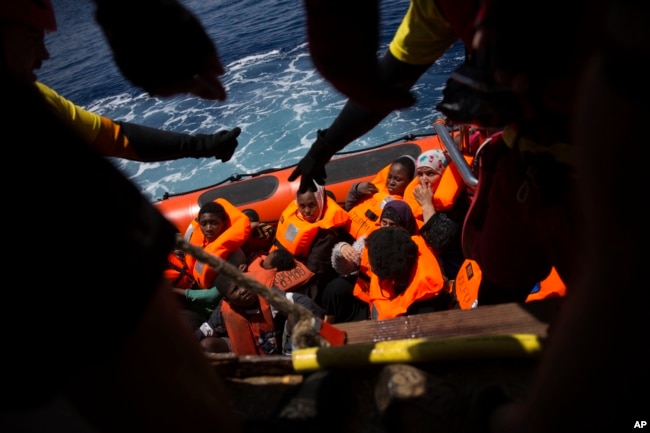
GENEVA — The International Organization for Migration reports efforts are ongoing to rescue around 200 migrants, from Somalia and Ethiopia, who have been kidnapped in Libya and are being held for ransom.
News of the kidnappings and illegal detentions in Libya first surfaced in a video, which appeared on Facebook on June 9. The International Organization for Migration says families of the missing men and women have received ransom demands based on short video clips depicting scenes of active torture.
IOM spokesman Joel Millman told VOA the source of the video is not known, but there is little doubt as to its veracity. He said the scenes of people, dozens to a room, are graphic.
“We understand that there are cases of people being tortured by cement blocks, I think, being put on their chest or put on their back,” he said. “There are limbs broken. There are scars and cases of slack, listless men who appear to be emaciated. The witnesses themselves complain about not having been fed for quite some time.”
Millman said the criminal gangs demand that families pay ransoms of $8,000 or more for the release of their loved ones. He said the families sell their livestock and other assets to meet these demands.
There is nothing new about the slaving industry, he said, as it has been around throughout history. What is new, he added, is the ready availability of digital devices and of high speed communication, even to some of the poorest villages in the world
“It gives criminals an opportunity to profit from the digital age,” he said. “There is no question that it is true that you can terrify a mother and father with a tweet or with an email or with a video you download onto a telephone in seconds. That kind of thing was not possible a generation ago and it is probably going to get worse.”
The IOM said it is working with partners to try to locate the migrants and its staff, in coordination with authorities in Libya, is trying to trace and potentially aid in the rescue of these victims.
The politically-unstable country is a transit point for migrants seeking to head to Europe. The lack of a stable government makes them vulnerable to abuse and exploitation.
VOA

